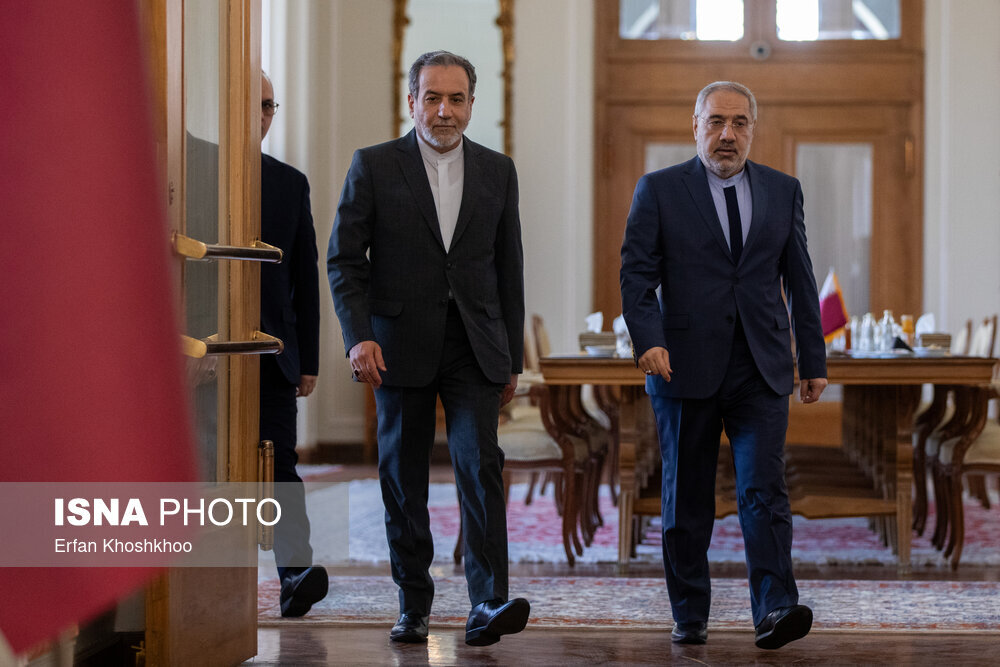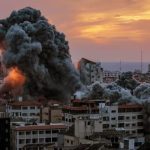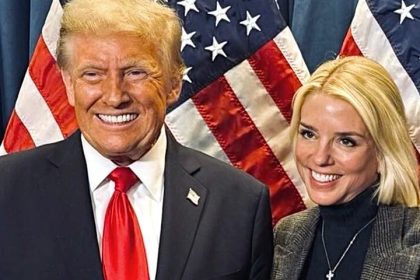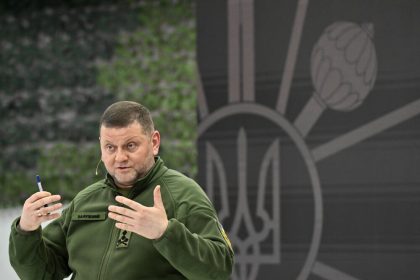Araghchi: The negotiation formula should be confidence building instead of lifting sanctions
Regarding the revival of sanctions lifting talks, Iran’s foreign minister said that “first, a suitable basis must be created for restarting negotiations, and then we enter into negotiations based on the previous formula that was used in the JCPOA, that is, confidence building in exchange for lifting sanctions.”
According to RCO News Agency, Seyed Abbas Araghchi, the Minister of Foreign Affairs of the Islamic Republic of Iran, on Sunday evening, participating in a special News interview program, gave explanations about the visit of the President of the Islamic Republic of Iran, Masoud Al-Madijian, to Iraq, as well as other international issues.
Araghchi said about the public diplomacy of the president during his visit to Iraq: All countries try to create a better image of each other through public diplomacy and create a favorable atmosphere so that the rest of the interactions can be done more easily, and this is not an easy task.
Iran’s foreign minister said: Iraq’s trip was one of the clear examples of public diplomacy through the president’s personal interactions in relations. The humble spirit of the president and his mastery of the Kurdish language changed the atmosphere during this trip.
Stating that “this trip has moved us forward for several years in the course of relations with Iraq and especially Iraqi Kurdistan”, Araghchi said: “This space has moved us forward in the fields of security and economy, and the public diplomacy of the president has made it possible in a different way with Let these issues be dealt with and the work will be easier.
He continued: Mr. President did the work of several years of public and cultural diplomacy during this trip.
The high-ranking diplomat of the Islamic Republic of Iran stated that “the public diplomacy of the president during this trip was amazing”, and said: This was the first visit of the Iranian president to the Kurdistan region of Iraq and Basra, and this trip was also historic from this point of view.
It was assured that the Kurdistan region of Iraq will not be a threat to Iran
The Iranian Foreign Minister further said: I think this trip has created a new chapter in Iran-Iraq relations.
In another part of his speech regarding the implementation of the security agreement between Iran and Iraq, Araghchi said: a large part of this agreement has been implemented before and a part of it remains, and during this trip, Iraqi officials in Baghdad and also in the Kurdistan region of Iraq Both Sulaymaniyah and Erbil have been assured that this agreement will be fully implemented and the remaining parts will be implemented. We were assured that the Kurdistan region of Iraq will not be a threat to the territory of the Islamic Republic of Iran in any way in the future and that the elements who abused it will be dealt with. They gave us a clear assurance in this regard.
He emphasized that “this trip also brought good achievements in terms of security”.
Iran and Iraq decided to move towards strategic cooperation
Iran’s foreign minister continued his talk about Iran-Iraq relations and the results of the president’s visit to this country and said: We have several important issues in the economic field that were discussed in Baghdad. Among them, Shalamche Basra railway, border bazaars, and our demands from the Iraqi government, which have become a problem for us and the Iraqi government, and solutions were already found and implemented, and now they are emphasized.
Araghchi emphasized: We and Iraq have decided to move towards strategic cooperation and define a comprehensive document for all dimensions of relations, including political, economic, security, environmental, etc.
Araghchi, in response to the question whether he thinks there is the capacity for the volume of trade relations between Iran and Iraq to reach 20 billion dollars, said: There is capacity in this relation, I think that despite the problems in the field of bank transactions. And there is a solution for them too, and our traders are involved in this field, there is a capacity to increase the volume of trade between the two countries.
He said: In my opinion, there is a lack of recognition of the export capacities of the two countries. In my opinion, there are good capacities in the Kurdistan region of Iraq and Basra, and if these capacities are used, we can increase the volume of exchanges more than what you mentioned, and this requires effort.
Europe must understand our security concerns
In response to a question about Iran’s relations with European countries, this high-ranking diplomat of the Islamic Republic of Iran said: If European countries correct their wrong policies regarding Iran, we can return to reasonable relations with Europe, and we are trying to do this. Although our priority is elsewhere, we do not forget to use the capacity there in line with the national interests of our country.
Emphasizing the point that “some European countries have adopted wrong and sometimes hostile policies against Iran”, he said: “The issue of Ukraine has also added to the complexity of our relations with Europe.”
Declaring that Iran is “ready to hold reasonable, rational and respectful dialogues with Europe to resolve misunderstandings and resolve the concerns of both sides”, Araghchi continued: Europeans cannot expect us to unilaterally address their security concerns. to understand; They should also understand our security concerns and speak from an equal position.
Emphasizing that “the way is not for the Europeans to use the failed and worn out tool of sanctions”, Iran’s foreign minister said: they sanctioned us before and finally they reached the negotiation table.
Araghchi went on to say: Isn’t Iran a country that was embargoed with barbed wire, how has it reached a point where it can export complex weapons according to your claim? That too to Russia.
Iran’s foreign minister said: “If Europe really wants to build trust, the way to do that is to have honorable dialogues from an equal position and based on mutual respect, in which the concerns of both sides are raised.” As I mentioned, we are ready for dialogue.
Doctors travel to New York
The Foreign Minister of the Islamic Republic of Iran also announced that the President of Iran will travel to New York to participate in the United Nations General Assembly.
He also stated that during this trip, the president will also probably participate in the “Heads for the Future” summit, which will be held on the sidelines of the United Nations General Assembly.
Araghchi mentioned that the president’s meeting with Iranians living in America, representatives of divine religions, representatives of the media, as well as the heads of some countries participating in this forum, are among the plans of the doctors during this trip.
He clarified: During this trip, the president will meet and consult with a number of heads of European, Asian and Islamic countries.
Iran’s high-ranking diplomat also announced: I will stay in New York for a few more days and continue meetings and consultations at another level.
The government’s policy is unlimited support for the resistance
In another part of his speech in this televised interview, Araghchi stated that the axis of resistance is in a good condition and clarified: We continue to support the movement of resistance and against the traps set by the Zionist regime and others to expand the war and that from Gaza to other areas, including southern Lebanon, and drag us and others into this issue, we are alert.
Iran’s foreign minister emphasized: “We are intelligently monitoring the developments in the region and will not allow the Zionist regime to achieve its sinister goals in Gaza and outside of Gaza.”
Araghchi emphasized: The foreign policy of the 14th government is unlimited support for the resistance. We will continue to support and strengthen the resistance front. The axis of resistance has now become a reality in the region, which cannot be denied or ignored.
He reminded: The Zionist regime has been fighting in Gaza for almost a year now with advanced military equipment, but it has not been able to achieve its stated goal of destroying Hamas.
Araghchi emphasized: This is the inability and failure of the Zionist regime, the inability and failure of the United States to support this regime and try to advance its policies in the region.
The international deputy and the political deputy will be involved in the negotiations
Araghchi also said about the negotiations to revive the JCPOA: First, a suitable basis must be created for restarting the negotiations, and then we enter into negotiations based on the previous formula that was used in the JCPOA, that is, building Iran’s confidence in exchange for the lifting of sanctions. We can return to this formula again. It is true that some parts of JCPOA do not have the same benefit for us as before, and some parts are out of date and should be changed, but it is a suitable framework to lead us to a new agreement.
However, he said: These are dependent on us reaching a point and basis of mutual understanding with the Europeans and the rest of the members of the JCPOA, so that we can enter into new talks from an equal position. It is not like we need to lift the sanctions, in such a way that we violate our larger interests or our dignity. We are ready to enter into dignified dialogues with Europe based on mutual respect and using existing frameworks. The JCPOA can provide us with the best frameworks to use honorable expressions and finally reach an honorable Tawaf that has the necessary guarantees.
Iran’s Foreign Minister stated: This is the path we will take. We look at the past and Learn from it, but we don’t stop at the past and look to the future.
The Minister of Foreign Affairs of the Islamic Republic of Iran, in response to the question whether it is true that the negotiations to lift the sanctions, if they want to continue, will be conducted at the International Deputy of the Ministry of Foreign Affairs. He said that this is an internal decision of the Ministry of Foreign Affairs, but the nuclear negotiations were initially held in the International Vice-President of the Ministry of Foreign Affairs, and at some point I was transferred to the Political Vice-President, who was transferred with me. Naturally, negotiations with 1+4 or 1+5 and negotiations with the agency will be conducted by the international deputy.
Araghchi continued: The team that will negotiate is a cohesive, empathetic and like-minded team, and we will not have marginal discussions, as we did not have before.
America is not ready for negotiations now
The Minister of Foreign Affairs of the Islamic Republic of Iran also said in response to a question about the American election and its results and its impact on the negotiations: “It doesn’t matter who our opposite party is; We negotiate based on our interests.
He continued: We are doing our duty and advancing the negotiations based on the interests of the country. It is a fact that America is not ready for negotiations now, and no country is ready for serious negotiations during elections.
Araghchi clarified: “If necessary, we will start contacts with the Europeans and we will not wait for America.”
A high-ranking diplomat of the Islamic Republic of Iran, in response to the question that Trump said that if I win the election, I will resolve the issues with Iran through a phone call, said: Mr. Trump’s words have many contradictions, our criterion is the actions of individuals and every Whoever becomes the president will be judged based on his actions and behavior and we will interact accordingly.
We are looking for inclusive and balanced diplomacy
In another part of his speech, Araghchi emphasized that “we are looking for inclusive and balanced diplomacy so that we can expand our relations with different countries and identify capacities”, and said: Diplomacy has shown us that if the capacities are properly are identified, we can provide the opportunity to expand the relationship properly.
He added: This issue requires a lot of effort and planning, and our colleagues started planning in this field so that we can enter new areas.
Referring to the president’s visit to Iraq, the Iranian foreign minister said: “Which country a president chooses as his first foreign trip destination carries a message, and we traveled to Iraq in the framework of the neighborhood policy and bilateral relations during the president’s first foreign trip.”
Araghchi also said: expanding relations with neighbors, emerging economic countries, international organizations, as well as China and Russia, which are our old friends, and expanding relations with new regions, Latin America, Africa, East Asia, etc. We follow up in parallel.
end of message
RCO NEWS
RCO

















